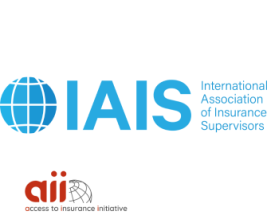Expanding access to health insurance in times of crisis and beyond | A2ii-IAIS Public Dialogue
Expanding access to health insurance in times of crisis and beyond | A2ii-IAIS Public Dialogue

It is hard to see silver linings in the developments of the past 18 months as a global pandemic has wreaked havoc on the world economy, upending millions of lives and livelihoods. Yet, there is reason to hope that the crisis will provide new impetus to progress on several key development objectives, with the expansion of broad-based health coverage rightfully ranking as a leading priority.
According to estimates by the World Health Organisation (WHO), each year, over 800 million people – the majority living in developing countries - suffer a financial catastrophe from paying out-of-pocket for health care. Expanding access to insurance as a health-related financial protection tool can therefore be considered a key measure for reducing financial hardship in the Global South. Government-run, compulsory health insurance schemes have been receiving particular attention in this regard in recent decades. These programs are generally considered best-suited to address the most essential health-related financial protection needs of low-income households. At the same time, there is also growing recognition that private and voluntary health (PHI) insurance solutions can complement such systems in powerful ways, especially when leveraging digital technology.
Simple, cash-based products such as hospital cash plans can provide an additional layer of financial resilience.
To shed more light on the potential of PHI in strengthening financial protection in health and what supervisors and regulators can do to catalyse this impact, the Access to Insurance Initiative and International Association of Insurance Supervisors (IAIS) on 30 September 2021 organised a Public Dialogue entitled "Closing the Health Financial Protection Gap: Expanding Access to Health Insurance in Times of Crisis and Beyond". The Dialogue brought together a diverse group of panellists representing development policy, business and supervisory perspectives. Following are what can be considered the three main takeaways from the discussion.
1. While it is challenging to set up voluntary and private health insurance that works for low-income groups, simple, cash-based products have shown to provide significant value to this customer segment.
In the words of Lisa Morgan, Technical Specialist with the Geneva-based International Labor Organisation (ILO), it is key that national health programmes are at the forefront of providing social health protection – globally, indemnity-based, private health insurance schemes have not managed to provide comprehensive and affordable cover to low-income populations at scale in a sustainable way. While the reasons for this limited success are varied, anti-selection (the greater likelihood of sick individuals seeking out such plans than healthy ones), the inability to cross-subsidise across a nation from the wealthy to the poor and the relatively high costs of such covers are major inhibiting factors for their sustainability
At the same time, ongoing ILO research shows that given the fiscal and other limitations sometimes faced by the public health sector, a more nuanced and integrated approach to managing the financial risks associated with ill-health may be appropriate, combining solutions from public and private sectors into a holistic bundle. For example, national health programmes provide an important foundation upon which simple, cash-based products such as hospital cash plans can exist, providing an additional layer of financial resilience. Recent studies show that hospital cash plans, as inclusive insurance products, have been successful. Rather than reimbursing beneficiaries for the actual incurred costs of care after a health incident took place, as indemnity-based plans do, hospital cash plans pay out a pre-defined amount of cash to beneficiaries in the case of a hospital stay. The cash benefit can help pay for out-of-pocket health expenses or replace a portion of lost income. For consumers, the simplicity of these products makes them easy to understand and trust, while for insurers, the proportionality of cover embedded in them implies little risk compared to indemnity products.
More broadly, there is also a need to make sure that those in the informal sector are covered by national schemes, as – depending on the country – they are often a missing segment. Private sector players, especially those in close contact with large groups in the informal sector, can help with enrolment, but this needs to be directed by the government.
Regarding distribution challenges when scaling hospital cash products and other health solutions in emerging markets, Asitha Rodrigo, Chief Technology and Product Officer at BIMA, provided interesting insights from practice. Asitha noted that health plan distribution models need to consider the particular realities of customers in emerging markets, which differ significantly from those of consumers in advanced economies. Recognising this, BIMA focused on distribution via channels appropriate to the target market with all services accessible from simple feature phones but also reaching out to the fast-expanding smartphone sector and offering maximum flexibility in payment options and frequency.
2. Regulatory clarity is key, especially at a time when digitalisation blurs the boundaries between services and providers across the insurance value chain.
For the private sector to fulfil its potential in narrowing the financial protection gap in health effectively, clear regulations and communication of regulatory requirements are key. For BIMA, rather than too burdensome regulation, it is more often a lack of regulation, conflicting regulatory mandates, or regulation applied out of context that pose challenges to expanding the reach of product offerings. In addition, in some jurisdictions, it is unclear which laws and regulations should apply to the governance of telemedicine services – a delaying factor to the launch of such services in these markets. Finally, there have been cases of conflicting opinions between regulatory authorities within one jurisdiction where BIMA is active over the applicability of different regulations to its products and services.
A willingness of regulators to engage with companies ... and understand the practical challenges they face in bringing services to consumers can help overcome regulatory barriers for expanding health and health insurance services.
For Asitha, a willingness of regulators to engage with companies like BIMA and understand the practical challenges they face in bringing services to consumers can help overcome regulatory barriers for expanding health and health insurance services. This is especially important at a time when, due to digitalization and its implications for business models, “the old world of clearly delineated services is likely to be a thing of the past”, as Rodrigo put it. He and other panellists also stressed the importance of regulatory authorities speaking to and coordinating with each other to work out where the corresponding borderlines are.
3. Covid-19 served as a significant impetus for innovation in health and health insurance delivery, with regulators and supervisors seeking to encourage flexibility.
The Dialogue showed that both the private and public sectors responded to the Covid-19 crisis by embracing innovation and customer-centricity. Lisa Morgan, for example, highlighted that several of the hospital cash products studied by the ILO team became more inclusive in the context of the crisis, as providers lifted exclusions for Coronavirus infection and related conditions and waived initial waiting periods before a product could be used. Meanwhile, Asitha Rodrigo noted that for BIMA, the crisis validated their technology-powered distribution model – which involved a strong bet on telemedicine – and encouraged it to further develop targeted health advice for its growing customer base.
Both the private and public sectors responded to the Covid-19 crisis by embracing innovation and customer-centricity.
Finally, Randip Singh Jagpal of the Insurance Regulatory and Development Authority of India (IRDAI) shared several examples of how the regulator addressed the exceptional situation caused by the coronavirus. Within only six weeks, in spring 2020, IRDAI defined minimum requirements for specialised Covid-19 health products, which drew strong demand from the Indian public. In addition, IRDAI also allowed instalment payments of insurance premiums to provide relief to distressed policyholders and encouraged insurance companies to set up designated Covid-19 helplines.
Looking ahead
Expanding access to affordable financial protection tools for health will be an important imperative for international development policy over the following years and decades. The private sector can be a powerful ally in bringing health and health insurance services to lower-income groups across the developing and emerging world. Supervisors and regulators are called upon to facilitate responsible innovation in this space by adapting approval and oversight models to the digital era as well as through active, multi-stakeholder communication. As a long-time ally to supervisors and regulators in emerging markets, the A2ii stands ready to assist its partners in developing the skills and capacity needed to fulfil this role.
For more information on this Dialogue, including the recording in English, French, and Spanish, click here.
To stay up to date on other A2ii-IAIS Public Dialogues, visit our events page.
Share this article
Also in Blog


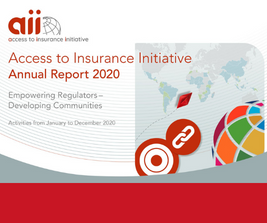



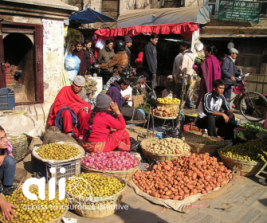




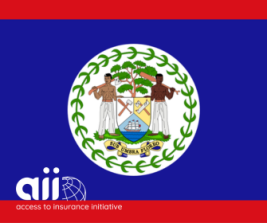

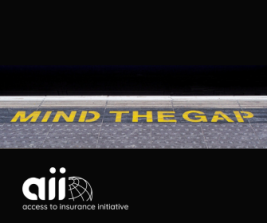
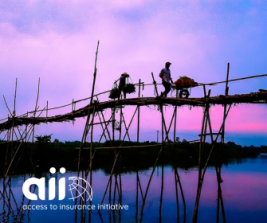

Authors
Posts by Author
Topics Cloud
Subscribe to our list
Receive notifications when we publish new blog entries
Subscribe here
